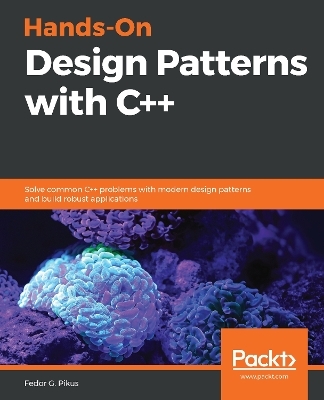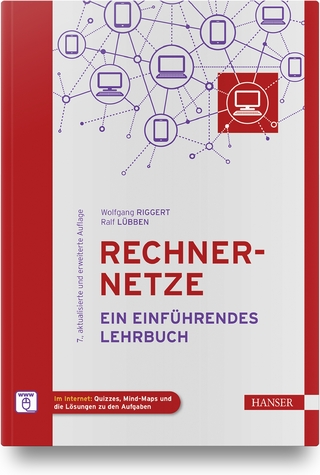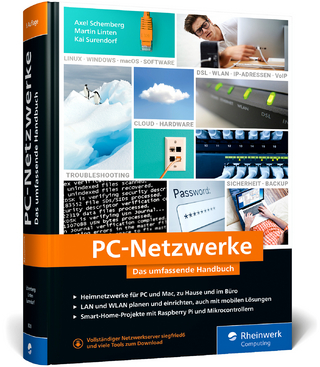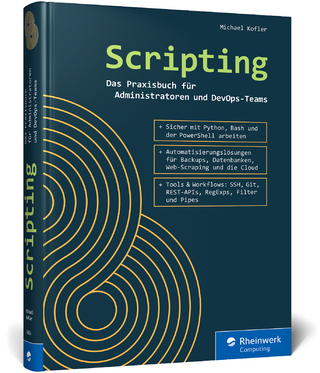
Hands-On Design Patterns with C++
Packt Publishing Limited (Verlag)
978-1-78883-256-4 (ISBN)
A comprehensive guide with extensive coverage on concepts such as OOP, functional programming, generic programming, and STL along with the latest features of C++
Key Features
Delve into the core patterns and components of C++ in order to master application design
Learn tricks, techniques, and best practices to solve common design and architectural challenges
Understand the limitation imposed by C++ and how to solve them using design patterns
Book DescriptionC++ is a general-purpose programming language designed with the goals of efficiency, performance, and flexibility in mind. Design patterns are commonly accepted solutions to well-recognized design problems. In essence, they are a library of reusable components, only for software architecture, and not for a concrete implementation.
The focus of this book is on the design patterns that naturally lend themselves to the needs of a C++ programmer, and on the patterns that uniquely benefit from the features of C++, in particular, the generic programming. Armed with the knowledge of these patterns, you will spend less time searching for a solution to a common problem and be familiar with the solutions developed from experience, as well as their advantages and drawbacks. The other use of design patterns is as a concise and an efficient way to communicate. A pattern is a familiar and instantly recognizable solution to specific problem; through its use, sometimes with a single line of code, we can convey a considerable amount of information. The code conveys: "This is the problem we are facing, these are additional considerations that are most important in our case; hence, the following well-known solution was chosen."
By the end of this book, you will have gained a comprehensive understanding of design patterns to create robust, reusable, and maintainable code.
What you will learn
Recognize the most common design patterns used in C++
Understand how to use C++ generic programming to solve common design problems
Explore the most powerful C++ idioms, their strengths, and drawbacks
Rediscover how to use popular C++ idioms with generic programming
Understand the impact of design patterns on the program’s performance
Who this book is forThis book is for experienced C++ developers and programmers who wish to learn about software design patterns and principles and apply them to create robust, reusable, and easily maintainable apps.
Fedor G. Pikus is a chief engineering scientist in the Design-to-Silicon division of Mentor Graphics (a Siemens business), and is responsible for the long-term technical direction of Calibre products, the design and architecture of software, and research into new software technologies. His earlier positions include senior software engineer at Google and chief software architect at Mentor Graphics. Fedor is a recognized expert on high-performance computing and C++. He has presented his works at CPPCon, SD West, DesignCon, and in software development journals, and is also an O'Reilly author. Fedor has over 25 patents, and over 100 papers and conference presentations on physics, EDA, software design, and C++.
Table of Contents
An introduction to Inheritance and polymorphism
Class and function templates
Memory ownership
Swap - from simple to subtle
A Comprehensive Look at Resource Acquisition is Initialization (RAII)
Type Erasure
SFINAE and Overload Resolution Management
The Curiously Recurring Template Pattern
Named Arguments and Method Chaining
Local Buffer Optimization
Scopeguard
Friend Factory
Virtual Constructors and Factories
The Template Method Pattern and the Non-Virtual Idiom
Singleton: a Classic OOP Pattern
Policy-based design
Adaptors and Decorators
Visitor and multiple dispatch
| Erscheinungsdatum | 05.02.2019 |
|---|---|
| Verlagsort | Birmingham |
| Sprache | englisch |
| Maße | 75 x 93 mm |
| Themenwelt | Mathematik / Informatik ► Informatik ► Netzwerke |
| Mathematik / Informatik ► Informatik ► Programmiersprachen / -werkzeuge | |
| ISBN-10 | 1-78883-256-6 / 1788832566 |
| ISBN-13 | 978-1-78883-256-4 / 9781788832564 |
| Zustand | Neuware |
| Haben Sie eine Frage zum Produkt? |
aus dem Bereich


